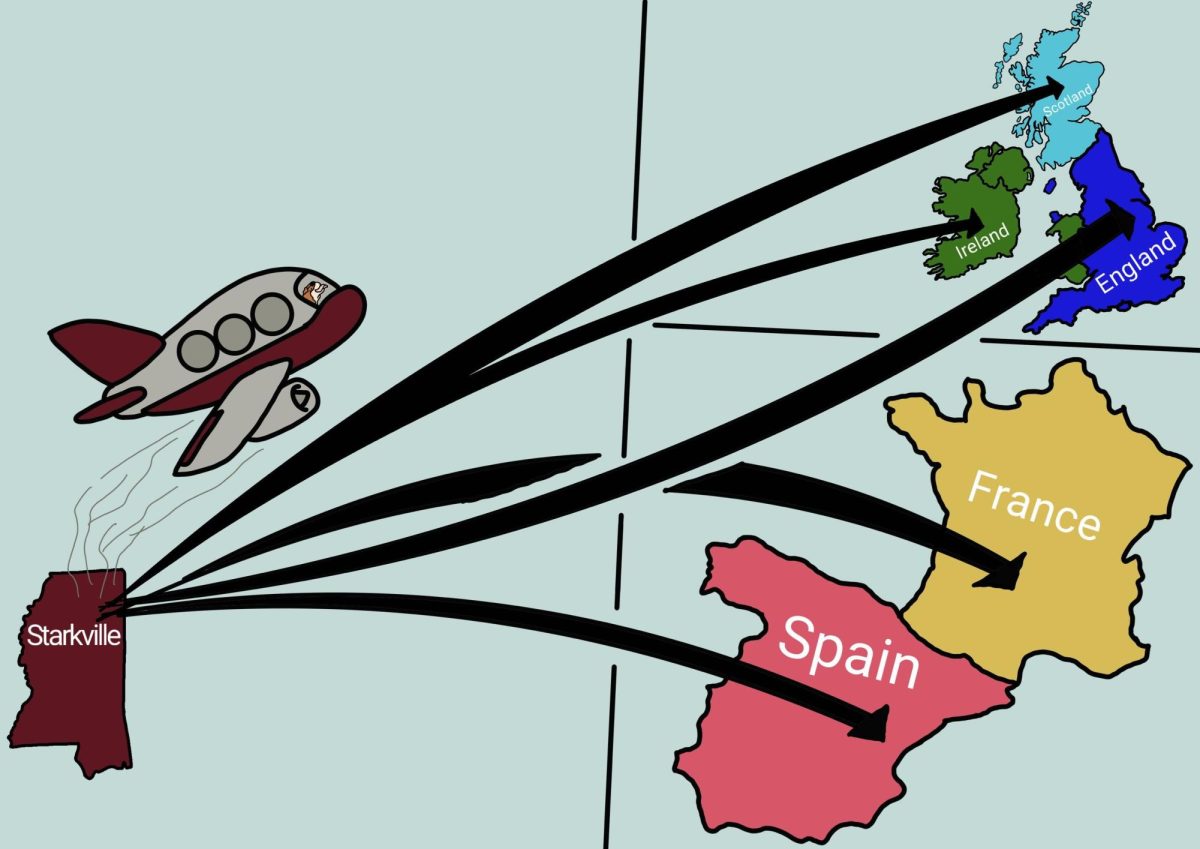There’s more to college than socials and stress. While some students may think university life would be perfect without all those pesky classes, in theory it’s those very classes that prepare us for the big “E” word-employment.
I guess you could say the classes we take determine the money we’ll make.
So it’s a mystery to me why the Faculty Senate would vote on a recommendation to trim the university core by taking away the required speech course, but it refused to trim three hours off the 15 hours set aside for science and math.
OK, so the IHL said state colleges had to trim the amount of hours necessary for graduation. Fine. So the Senate voted to take away some courses that are redundant or already absorbed by most majors, i.e. the junior/senior writing and computer literacy classes. I can deal with that.
But then they took away speech. What were they thinking?
True, the fear of speaking in public is the No. 1 phobia in the country. But we all face a time where we have to speak in front of others. And if the primary goal of college is to get a job, then which is needed more-speech or science?
We are all going to have to utilize our conversational and organizational skills to get our feet in the door of the job market. For instance, job interviews sometimes require presentations, and that includes interviews for engineering majors. Then, if you’re lucky enough to get hired, you have to give reports to your co-workers, bosses and clients. It can be argued that all majors at MSU could benefit from a course that teaches how to organize and present ideas.
Since most majors on campus require science and math within their core, what sense does it make to keep the extra three hours? There are plenty of math and sciences, but only one speech class.
I’m required to have two sciences with labs for my major’s core, but then I have to take that hard science because the university core says so. It may be too late for me, but I won’t sit idly by while the next generation is forced to enroll in too many electives.
Everyday life involves communication and science. But if you’re in a grocery store and want cheaper papayas, you’re have to know how to tell the clerk about the lower prices on tropical fruits across town. Thus, you’ll have researched your information, and then you’ll present your idea.
Now if you were more concerned over how to grow the papayas or to genetically splice its genes with a kiwi, maybe that extra science course would have come in handy.
Serving on a jury, you’d have to know how to communicate your thoughts in the deliberation room. Parties, meetings, classes, fundraisers and ticket appeals-all great places to put your skills learned in speech class to use.
I don’t mean this as a slam to any science classes, professors or majors. But for the best of every student on campus, I urge you to think about how speech can help us all in the afterlife, a.k.a. life after college.
Sure, it can be scary, and sometimes sickening, to some students. Yet its lessons are invaluable to anyone who plans on functioning in today’s society.
If the main goal of higher learning is to help graduates get higher paying jobs, then how can the university in good conscience take speech out of its core? You will all need it someday.
Dustin Barnes is a communication major. He can be reached at [email protected].
Keep speech in curriculum
Dustin Barnes
•
September 24, 2004
Leave a Comment
Donate to The Reflector
Your donation will support the student journalists of Mississippi State University. Your contribution will allow us to purchase equipment and cover our annual website hosting costs.






















































































